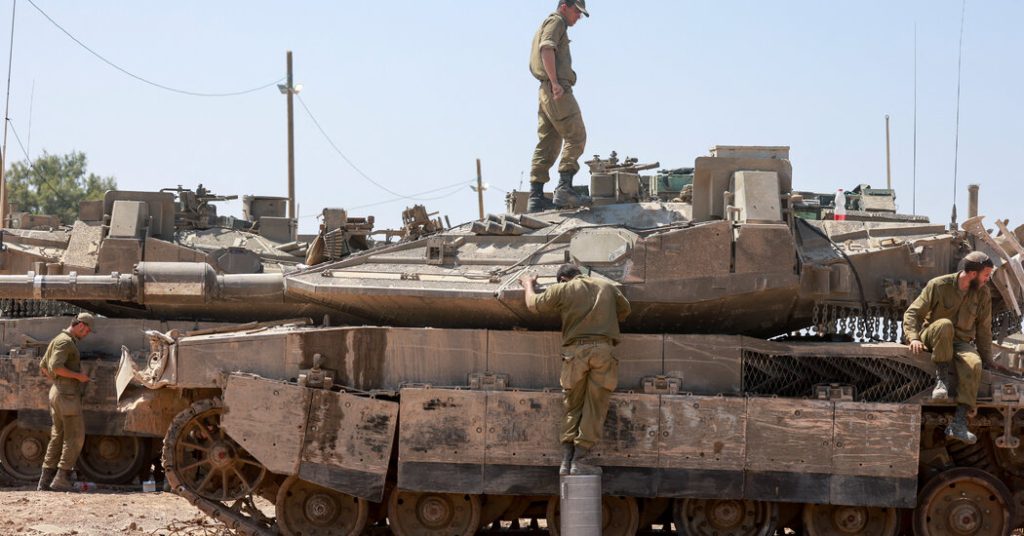Israeli leaders are considering their response to an unprecedented weekend airstrike from Iran, weighing options such as deterrence, placating American allies, and avoiding all-out war. The attack, which included hundreds of ballistic missiles and drones, marked a significant change in the unspoken rules of the conflict between the two countries. While most of the incoming missiles were intercepted, the attack prompted discussions about potential military responses and diplomatic de-escalation efforts.
Options being considered by Israeli leaders include striking an Iranian target in a different country, targeting a symbolic location in Iran itself, conducting a cyberattack, or accelerating smaller attacks such as targeted assassinations. Some officials have also proposed doing nothing in order to leverage international and regional alliances. The war cabinet discussions are complex, marked by old rivalries and distrust among members. American officials have advised Israeli leaders against retaliation, but acknowledge the pressure Israel faces to respond to a direct attack.
Despite the urging from the U.S. to avoid retaliation, Israeli leaders are contemplating their course of action in response to the Iranian airstrike. The Israeli war cabinet, composed of five members with varied backgrounds, has yet to make a decision on how to proceed. Internal debates within the cabinet highlight differences in opinion on the necessity and timing of a response. The potential for further escalation and attacks by Iran adds to the complexity of the situation.
In addition to potential military responses, the United States is considering imposing tougher sanctions on Iran in the coming days as part of diplomatic efforts to pressure and punish Iran. The European Union is also considering expanding economic sanctions against Iran’s weapons program in response to last weekend’s attack on Israel. Pressure from various countries and multilateral organizations is aimed at averting a broader conflict in the region and preventing further escalation of violence.
The Israeli response to the Iranian airstrike is being carefully deliberated, with considerations for strategic outcomes, international alliances, and potential escalations. The changing dynamics of the conflict and the need to maintain deterrence while avoiding a full-scale war add to the complexity of the decision-making process. The involvement of various actors, including the United States, the European Union, and regional allies, underlines the international dimensions of the conflict and the efforts to prevent further escalation in the Middle East.















